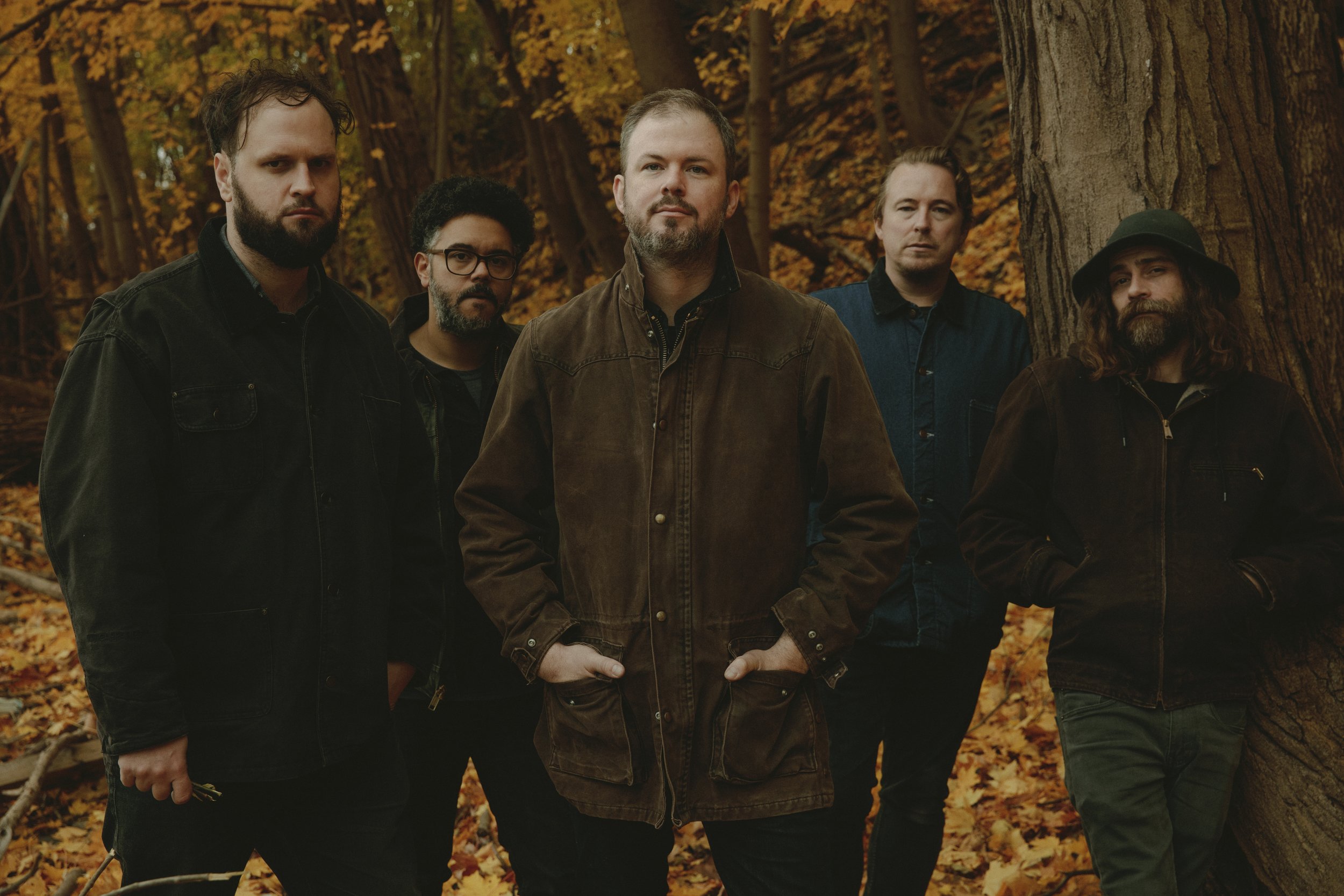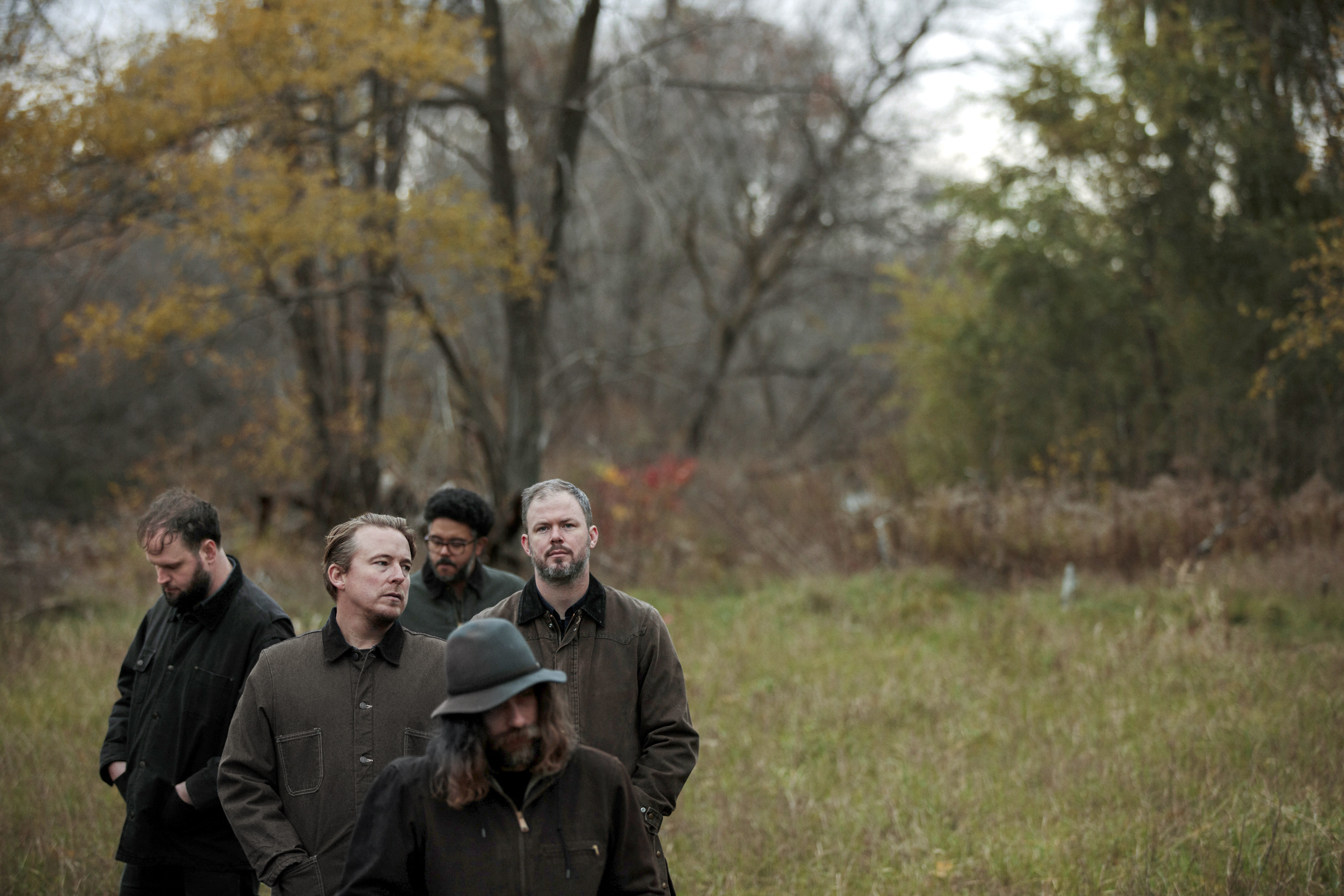Wintersleep
Hey Underwater Sunshine Fest fans, it’s Charlie, here to talk about—well, Canada. The landscape of American musical history has been so irrevocably shaped by Canadian artists, and somehow we never remember that many of the artists we love, like Joni Mitchell, Gordon Lightfoot, and Neil Young are all Canadian. So I want to lead with the fact that Wintersleep, a Juno award-winning folk-rock group that just signed up to play the festival this fall, is originally from Halifax, Nova Scotia—and I don’t know if “winter” and “sleep” have different connotations up in the Great White North, but their music can hardly be encompassed in the standard American connotations of those two words. I opened Spotify and searched for “Wintersleep,” expecting sweet, soothing, perhaps even dark music—and at times Wintersleep can be all of those things, like in “Into the Shape of Your Heart,” from their most recent record, In the Land of— but what I got was one of the most versatile groups I’ve ever encountered, working without regard to genre, trope, or tradition.
Photo by Norman Wong
Just within In the Land of, completely ignoring a sixteen year career of exceptional albums before this one, they have songs like “The Lighthouse” that open with a taut fingerpicking pattern, hinting at a furious collapse that lurks beneath the rhythm before releasing a driving bass, then an effects-heavy second guitar riff, until finally the song makes itself known in its entirety, just for a few bars, then leashes itself again.
They follow this exercise in restraint with the playfully gruesome “Never Let You Go,” which uses light, simple strumming patterns on two acoustic guitars to introduce us to a horrifying chorus, that runs:
Go ahead now, I’ll never let you go
Go ahead now, scream and shout
Go ahead now, the moon’s out
Go ahead now, I’ll never let you go.
All while repeating “I’ll never let you go” over the rest of the lyrics. But that’s how that feeling works in all of us, to a degree: we want so deeply to never let our loved ones go, and we know how terrifying that sounds when we say it outright, so we cover it with happy guitars and intimations of playfulness until we scare ourselves a little less.
On this same record, Wintersleep takes us for another loop and includes an ethereal, electronic sounding piece like “Waves”. The song almost seems to swell up inside us, ebbing and flowing with a bass riff that feels somehow tied to that little impulse inside us all that makes us breathe easier when the sun comes out.
Photo by Norman Wong
On a record full of remarkable changes in genre and tone, the most extraordinary song, for my money (which I admit is very little), is the closer “Free Pour.” Its lyrics are dense and, at the same time, clear, and the demand that you listen to this invocation of the fear and freedom inherent in an artistic profession:
Baby, I’m on the shy side of forty
Still writing riffs like nobody’s business
Except in my case it most certainly is
I’m a professional riff writer
Slinger of pure metaphor
That opening line stands out at first glance: what does “the shy side of forty” have to do with being an artist? Well, one of the greatest works of art of the last millennium begins with some poet named Dante bemoaning the approach of middle age, asking an implicit question: have we wasted our lives, making our art? In the next verses “Free Pour” draws this connection, placing the narrator in a first interaction with someone, trying to rely on their musical success to impress the new acquaintance and failing. If their success doesn’t help them in this life, the story seems to ask, then what is the point of continuing?
Throughout the song, “the shy side of forty” either connotes an endless potentiality, a whole new life ahead of the narrator, or total pointlessness, a glass half empty whose contents weren’t all that exciting to begin with. The line comes around again and again, as though the song itself is grappling with what it means to be approaching middle age. There’s loneliness and beauty, terror and understanding at war with each other throughout, and the tension between these ideas of what it means to be “on the shy side of forty” build by the end of the song to a wall of sound, almost overwhelming the lyrics, which end:
At the shy side of forty
When we die, do we start over again?
At the shy side of forty
Time and time we have to find it again
When we die, do we start over again?
Back at the shy side of forty
At the shy side of forty.
The line that repeats at the end, “When we die, do we start over again,” is nearly the key to the whole piece. It has a hopefulness to it, immediately dashed by the place we might start again from: “back at the shy side of forty.” But what we leave with is not hope or despair: somehow Wintersleep resolves this struggle into contentment.
With the Cats movie coming out in December, we should all be familiarizing ourselves with T.S. Eliot, the poet whose work inspired the musical; and in the case of Wintersleep, one of his most famous lines feels more true than ever: “winter kept us warm, covering Earth in forgetful snow.” Every time I’ve listened to Wintersleep since hearing their name this spring, that line has resonated. They speak to that little creature in our chests that smiles when the sun comes out, and they let us forget for a moment the conflict, hope, and despair that seem inescapable right now. I’ll be honored to see them play this November, and I hope you go listen to their music, because you just might be introduced to your next favorite Canadian musicians.



